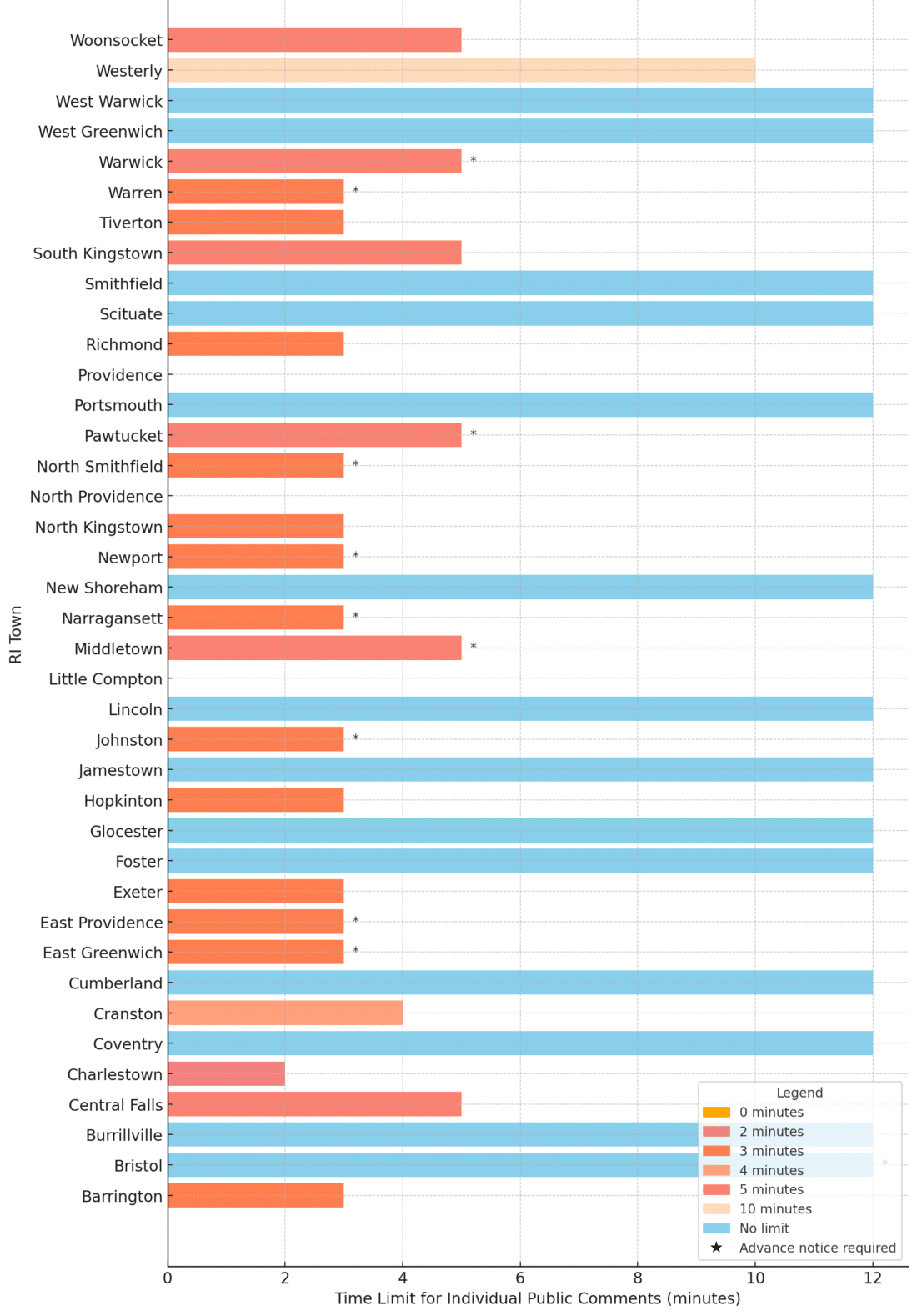Speaking Up for Democracy: RI ACLU Reports on Troubling Limits in Town Meetings
The ACLU of Rhode Island’s new report reveals significant variations in public comment policies across local town governments. While some councils and committees encourage open discourse, others impose strict limits, raising First Amendment concerns. The report emphasizes the need for enhancing public engagement to foster better policymaking and community bonds.
January 23, 2024, 7:37 am
By Uprise RI Staff
Public participation at city and town council meetings has long been a way for Rhode Islanders to engage directly with their elected leaders. But a new report from the ACLU of Rhode Island reveals wide variation across the state in how much input local governments allow residents during public comment periods.
While some communities fully embrace civic discourse, others impose limits that can hinder public involvement and raise First Amendment concerns. The ACLU report reviewed the public comment policies of all 39 Rhode Island city and town councils, as well as 34 school districts. It found divergent approaches in how much time is allotted for comments, requirements to speak, and even the ability to discuss certain topics.
For example, the report showed that councils in Exeter, Middletown, Newport and Warren allow just 15 minutes total for all public comments at their meetings. School committees in Bristol-Warren and Exeter-West Greenwich have the same brief limit. These compressed windows for civic input mean only a handful of speakers can voice their views, even on critical issues affecting the community.
In contrast, councils in Hopkinton, Little Compton, Smithfield and elsewhere set no time limits at all for their public comment periods. This allows ample time for discourse between residents and their elected representatives.
The town of Johnston requires prospective speakers to sign up five days in advance just to talk at a council meeting. But some bodies, like the Westerly School Committee, let individuals speak without any advance notice.

A number of public entities limit comments only to agenda items, while others ban discussion of anything on the agenda. Central Falls and Tiverton councils restrict input to agenda topics, while the Barrington council and certain school committees prohibit comments on agenda items.
Even more concerning, some bodies prohibit discussion of certain subject matter they deem inappropriate. The Newport City Council bans any comments related to personnel issues, as do school committees in Barrington and East Providence. The Johnston School Committee chair must stop speakers who discuss individual employees.
Other questionable policies prohibit “personal attacks” or require that speakers have a “courteous” tone. These vague standards often act to censor criticism of public officials. The Massachusetts Supreme Judicial Court recently ruled that such “civility codes” violate free speech rights by allowing praise of officials but not condemnation.
While the ACLU report focused on written policies, some public bodies may still overly limit public comment in practice at meetings. But Rhode Islanders interviewed agreed that Participating in local governance leads to a greater sense of community.
The ACLU made a series of recommendations based on its research to encourage reasonable public input. They included scrapping overall time limits on comment periods and waiting until after meetings start for individuals to sign up to speak. The group also said no topics should be prohibited based on whether they are on the agenda.
Rhode Island has a proud tradition of civic participation dating back to its founding. The report’s authors say enhancing public comment periods will strengthen bonds between residents and elected councils and committees. They argue that hashing out disagreements openly, however messy, leads to better policymaking.
There are practical steps citizens can take to push for more transparency. The ACLU advises getting informed on local rules, asking questions of officials, and speaking up at meetings to lobby for change, even where comments are limited.
Democracy depends on ordinary people exercising their voice. The ACLU report should serve as a call to action for Rhode Islanders to engage with their local governments, move them to tear down barriers to participation, and fulfill Norman Rockwell’s ideal of vibrant town hall debates.






